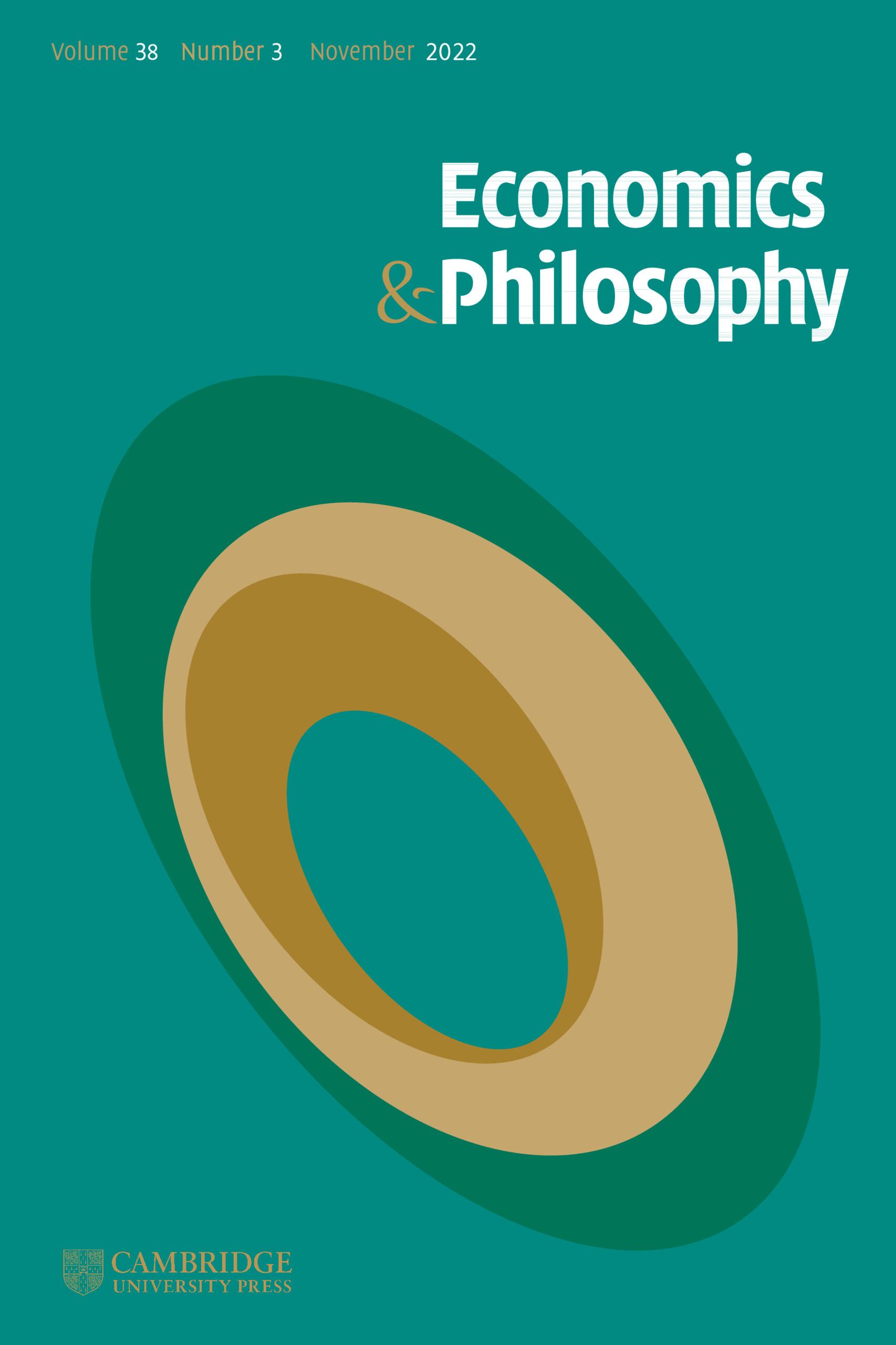Reading: Jack Wright (2023), “The Hierarchy in Economics and Its Implications”
Shared Article from Cambridge Core
The hierarchy in economics and its implications | Economics &…
The hierarchy in economics and its implications
cambridge.org
The paper is available as Open Access, so you should be able to read it for free either in HTML form or by downloading or printing a full-text PDF.
Is the way that economics is organized conducive to the production of economic knowledge?
James Heckman and Sidharth Moktan (Reference Heckman and Moktan2020) recently highlighted the dominance of economics’ ‘Top 5’ journals. Others have noted the outsize representation of economists from top-ranked departments among the authors and editors of those journals (Fourcade et al. Reference Fourcade, Ollion and Algan2015; Colussi Reference Colussi2018). I collect these issues together with others to highlight the many asymmetries of power, status and influence that exist between economists. In addition to (i) the dominance of the Top 5 and the concentration of (ii) authors and (iii) editors from a few universities in those journals, the top-ranked departments also train most of the discipline’s (iv) governors and (v) awardees, (vi) individual star economists dominate networks of coauthorship and (vii) the discipline exhibits a strong prestige factor in hiring. Together these asymmetries constitute the hierarchy in economics.
I give reasons to believe that the hierarchy in economics is both steeper – the asymmetries are greater – than it could be and steeper than hierarchies in other fields. I then highlight four reasons to worry about this increased degree of hierarchy in economics. Through (a) reinforcing conservative selection biases and (b) disincentivizing innovation, the steeper hierarchy in economics constrains the development of new beliefs from the discipline. By (c) restricting the exploration of alternatives, the steeper hierarchy reduces the justification we have for believing the outputs of economics. By (d) discouraging criticism, the steeper hierarchy makes it less likely that errors and faulty reasoning will be spotted. This reduces the likelihood that the outputs of economics will be true and so further reduces the justification we have for believing them. My descriptions of (a–d) will be qualitative. I will describe how the present organization of economics leads to (a–d) and describe the negative impact (a-d) have on the production of economic knowledge. I will not measure the effect size of (a–d) or weigh them off against trade-offs. My argument will, consequently, not constitute an all-things-considered judgement on the health of economics. The point is rather to describe the asymmetries that exist between economists (i–vii) and to spell out the mechanism by which these social features of economics impact the epistemic virtues of its outputs (a–d).
— Jack Wright (2023), The Hierarchy in Economics and Its Implications
In Economics & Philosophy. Published online 2023:1-22. doi:10.1017/S0266267123000032
The top-line argument of the paper as a whole is pretty interesting; there is also an interesting passage off to one side later on in the paper in response to a possible objection that there may be convincing countervailing reasons why economics should be strongly hierarchical or as hierarchical as it actually is or…. Maybe so! But even if so, these considerations still have to be considered as a real cost, even if they are the cost of something that is worth having for other reasons.
A second way of responding to the points I have raised could be to suggest that I have been too one-sided. Are there not circumstances in which steep hierarchies can be beneficial? To this I offer a clarification. The issues I describe should be considered pro tanto reasons to worry about the present degree of hierarchy in economics. I have argued that the steeper hierarchy in economics encourages four mechanisms that lower the uptake and supply of new beliefs in and the justification of the outputs of the discipline. I have not argued that the hierarchy in economics has no other effects. Thus, although (a–d) should give us reason to worry about the present organization of economics, they do not constitute an all-things-considered judgement on the health of the discipline. (a–d) are best thought of as tendencies worth paying attention to in discussions of how economics should be organized. An all-things-considered judgement on the organization of the discipline should consider (a–d) in conjugation with calculations of their effect sizes and also consider trade-offs from changing the present situation – including any beneficial effects of the hierarchy in economics.
— Jack Wright (2023), The Hierarchy in Economics and Its Implications
In Economics & Philosophy. Published online 2023:1-22. doi:10.1017/S0266267123000032
If it’s not worth having for other reasons, then the paper closes with some really interesting and thoughtful (if not especially decisive) considerations of things that might be done within the discipline.
Read the whole thing, as the kids of my generation used to say.

Reply to Reading: Jack Wright (2023), “The Hierarchy in Economics and Its Implications” Follow replies to this article · TrackBack URI
Follow replies to this article · TrackBack URI